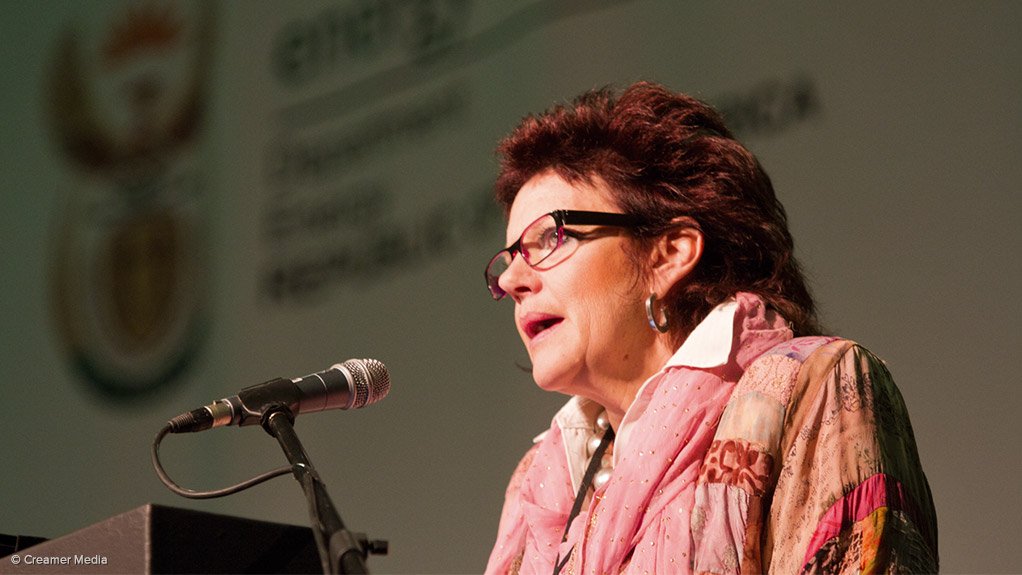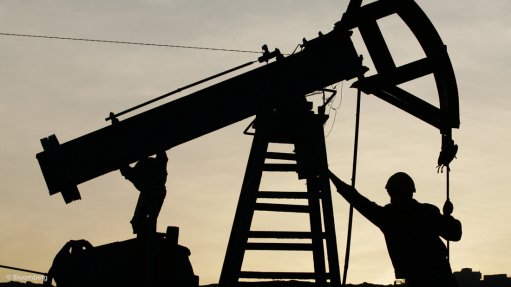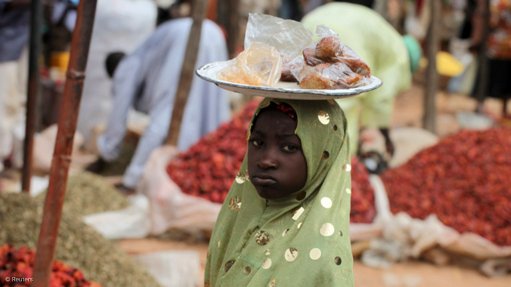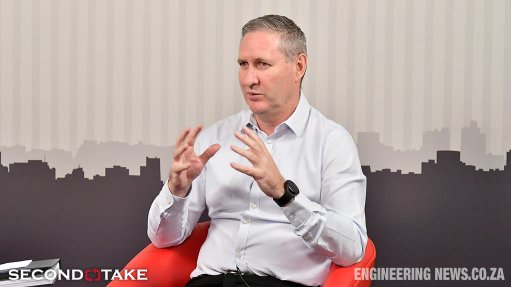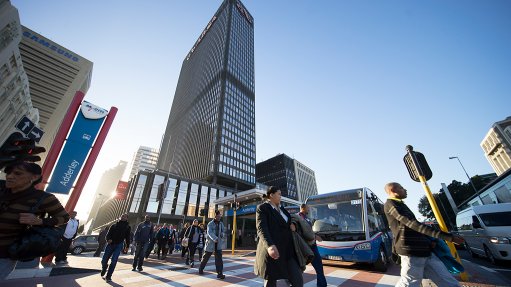Renewable energy improves water supplies
By Karen Breytenbach Head IPP Office
Renewable energy has been an official part of South Africa’s exciting technology rollout since it was included in the country’s Integrated Resource Plan 2010 (IRP 2010). Through this, the South African government committed to produce nearly a tenth of our nation’s electricity from renewable sources within two decades.
That entails harnessing new technology to leverage South Africa’s natural resources, creating wind, solar and smaller-scale hydropower projects, as well as using biomass, biogas and landfill gas. But an important element of IRP 2010 was how it networked with our National Development Plan (NDP).
The NDP creates integrated links between the nuts and bolts of infrastructure development and the daily socioeconomic needs of our people and their ultimate upliftment and empowerment. In an arid country such as South Africa, water is an even more prized resource than it may be elsewhere. Supplying water to households was a major Government priority in the first decade or so after South Africa’s first democratic elections. Extending that supply and maintaining it remains high on our priority list.
The priority we all place on water has been demonstrated through the rollout of the Renewable Energy Independent Power Producers Programme (REIPPPP). Independent power producers (IPPs) who won bids through the REIPPPP to construct and operate renewable-energy projects also committed themselves to devote a portion of their annual revenue to socio-economic and enterprise development projects in the areas where they operate.
IPPs are so far committing more than R19-billion over the next 20 years to education, health, welfare, environmental and entrepreneurship projects. These are especially important to the local communities where the IPPs are based as the projects are mostly located in rural and impoverished regions.
This means that, in line with the NDP, we have ensured that rolling out renewable-energy projects is about more than supplying the national grid with electricity. The REIPPPP is, in fact, about renewing resources in the broadest sense, hand in hand with the community.
The small community of Riverton, about 15 km outside Kimberley and consisting of just 45 households, is one of those who were asked about their needs. Riverton sits on the banks of the Vaal River. Yet despite the water flowing past, Riverton residents have suffered frequent outbreaks of waterborne diseases. This community received land through our national land restitution programme in 2006, making it the landlord of the Droogfontein Solar Power built nearby. It is also a shareholder in the project.
So when the Droogfontein management approached the Riverton community about assisting with their most pressing needs, top of their wish list was purified water. A small-scale water purification plant was built at a cost of R333 000.
Previously, families used to have to draw water straight from the river, then spend time and use energy boiling it before use. Now their water-purification plant has provided them with a reservoir of fresh drinking water for the first time. Water is piped from the reservoir to communal collection points where residents can now access unlimited safe water for their households.
Babies are frighteningly susceptible to the impact of diarrhoea but we hear that Riverton mothers no longer fear the risks of their little ones waking up with runny tummies at night or the anxiety of waiting for an ambulance to come to take a stricken child to hospital as a result of drinking unpurified water.
Members of the Witbank community in the Pofadder area, also in the Northern Cape, shared Riverton’s concerns about the quality of their drinking water. KaXu Solar One, the first solar thermal electric power plant commercially operated in South Africa, made an initial donation of R75 000 for improvements to the pump station and water-purification system and remain working with the Witbank community to complete this upgrade. KaXu Solar has also worked with the Onseepkans community in Namaqualand to repair and upgrade their irrigation system so that local small-scale farmers can become self-sustaining.
Many of the IPP projects are based in the driest regions of our country – the Northern Cape, North West, Limpopo and the Eastern Cape. So, time and again, in consultation with these local communities, the request came through for water-supply improvements. But where communities request it, other projects may address other REIPPPP key community-development focus areas: education and literacy, information technology and communication, healthcare and transport, and skills development and training.
RustMo1, the first solar farm project in the North West Province, is assisting a hospice for vulnerable children and sick people with cancer, HIV or TB. Another project, assisted by the Jeffrey’s Bay Wind Farm in the Eastern Cape, is the Pellsrus Surfing Foundation, which already sees young surfers from the area competing on the international surfing circuit. Projects assisted by the Kouga Wind Farm, located at Oyster Bay in the Eastern Cape, include a Healthy Mom and Baby Clinic, the upkeep of Talhado Haven and providing environmental management training to community managers.
Projects like this that respect the needs and wishes of communities give hope and inspiration to all of us as we weave together the fabric of our new nation.
We are proud of the remarkable progress of the REIPPPP and how it has delivered nearly 2 000 MW of electricity to the national grid in only four and a half years. We are showcasing this alongside the achievements of our IPPs at the high-level South African International Renewable Energy Conference, taking place at the Cape Town International Convention Centre from 4 to 7 October.
And we are equally proud to showcase how business and community have worked together in fruitful symbiosis. As the isiZulu saying puts it, “One hand washes another” – izandla ziyagezana.
Comments
Press Office
Announcements
What's On
Subscribe to improve your user experience...
Option 1 (equivalent of R125 a month):
Receive a weekly copy of Creamer Media's Engineering News & Mining Weekly magazine
(print copy for those in South Africa and e-magazine for those outside of South Africa)
Receive daily email newsletters
Access to full search results
Access archive of magazine back copies
Access to Projects in Progress
Access to ONE Research Report of your choice in PDF format
Option 2 (equivalent of R375 a month):
All benefits from Option 1
PLUS
Access to Creamer Media's Research Channel Africa for ALL Research Reports, in PDF format, on various industrial and mining sectors
including Electricity; Water; Energy Transition; Hydrogen; Roads, Rail and Ports; Coal; Gold; Platinum; Battery Metals; etc.
Already a subscriber?
Forgotten your password?
Receive weekly copy of Creamer Media's Engineering News & Mining Weekly magazine (print copy for those in South Africa and e-magazine for those outside of South Africa)
➕
Recieve daily email newsletters
➕
Access to full search results
➕
Access archive of magazine back copies
➕
Access to Projects in Progress
➕
Access to ONE Research Report of your choice in PDF format
RESEARCH CHANNEL AFRICA
R4500 (equivalent of R375 a month)
SUBSCRIBEAll benefits from Option 1
➕
Access to Creamer Media's Research Channel Africa for ALL Research Reports on various industrial and mining sectors, in PDF format, including on:
Electricity
➕
Water
➕
Energy Transition
➕
Hydrogen
➕
Roads, Rail and Ports
➕
Coal
➕
Gold
➕
Platinum
➕
Battery Metals
➕
etc.
Receive all benefits from Option 1 or Option 2 delivered to numerous people at your company
➕
Multiple User names and Passwords for simultaneous log-ins
➕
Intranet integration access to all in your organisation



